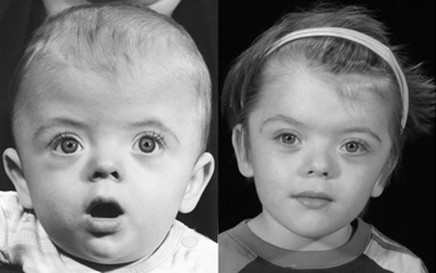Muenke syndrome, a member of the craniosynostosis group of syndromes, is caused by a specific dominant mutation (P250R) of the FGFR3 gene. Combined with the presence of unilateral coronal synostosis in a patient, testing for the presence of this mutation provides definitive diagnosis.
Muenke syndrome

The presence of other minor abnormalities in the extremities is sometimes noted, but these are not characteristic of the syndrome. Advanced paternal age has been shown clinically to be associated with de novo mutations for Crouzon syndrome, Apert syndrome, Pfeiffer syndrome,Beare-Stevenson syndrome and Muenke syndrome. In any case, prenatal diagnosis for most craniosynostosis syndromes is not very common and is a sensitive issue, since the disorders are treatable through appropriate corrective surgery.
We perform automated bi-directional fluorescent DNA sequencing of exon 7 of the FGFR3 gene, allowing for the detection of the typical P250R mutation of the disorder.